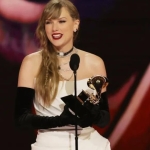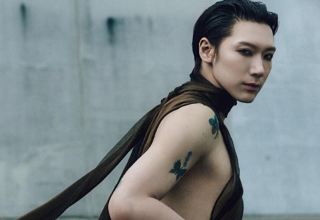
Taylor Swift is one of the most popular and successful singers in the world, with millions of loyal fans who adore her music, style and personality. But according to a professor of Pan-African Studies at Cal State University Los Angeles, being a Taylor Swift fan might also reveal a hidden racism that is embedded in the culture and society. Here is what the professor said and why it sparked a controversy online.
Who is the professor and what did she say?
The professor is Melina Abdullah, who is also a co-founder and co-director of the Black Lives Matter movement in Los Angeles. She is known for her outspoken and controversial opinions on various issues related to race, politics and culture. On February 11, 2024, she posted a message on X, a social media platform, that read: “Why do I feel like it’s slightly racist to be a Taylor Swift fan?” She did not provide any explanation or evidence for her statement, but she later responded to some of the comments that questioned her logic. She said that she was expressing her feeling, not her thought, and that she felt uneasy when she saw too many American flags. She also said that virtually everything is racist, and that she was not offended by the criticism she received.
Keep Reading
Why did her statement cause a backlash?
Her statement provoked a lot of reactions from Taylor Swift fans and other users who found her claim to be baseless, absurd and insulting. They argued that liking Taylor Swift’s music has nothing to do with racism, and that the professor was projecting her own biases and prejudices onto others. They also pointed out that Taylor Swift has been vocal about her support for racial justice and equality, and that she has donated to various causes and organizations that fight against discrimination and oppression. They accused the professor of being divisive, hateful and ignorant, and of trying to stir up controversy for attention and publicity.
The professor’s statement can be seen as part of a larger debate and discourse about the role and impact of pop culture, especially music, on the construction and reproduction of racial identities and relations. Some scholars and critics have argued that pop music, especially white-dominated genres such as country and rock, have historically appropriated, exploited and erased the contributions and influences of black artists and cultures, and have reinforced the dominance and privilege of whiteness in the music industry and society.
They have also suggested that some pop stars, such as Taylor Swift, have used their white femininity and innocence to appeal to a predominantly white and conservative fan base, and to avoid or deflect criticism and accountability for their actions and statements that might be seen as problematic or insensitive. On the other hand, some scholars and fans have defended and celebrated pop music, especially Taylor Swift’s music, as a source of empowerment, expression and diversity, and as a platform for challenging and changing the status quo and the stereotypes. They have also highlighted the ways that pop music, especially Taylor Swift’s music, has incorporated and acknowledged the influences and collaborations of various genres, artists and cultures, and has addressed and advocated for various social and political issues, such as gender equality, LGBTQ+ rights and voting rights.

























